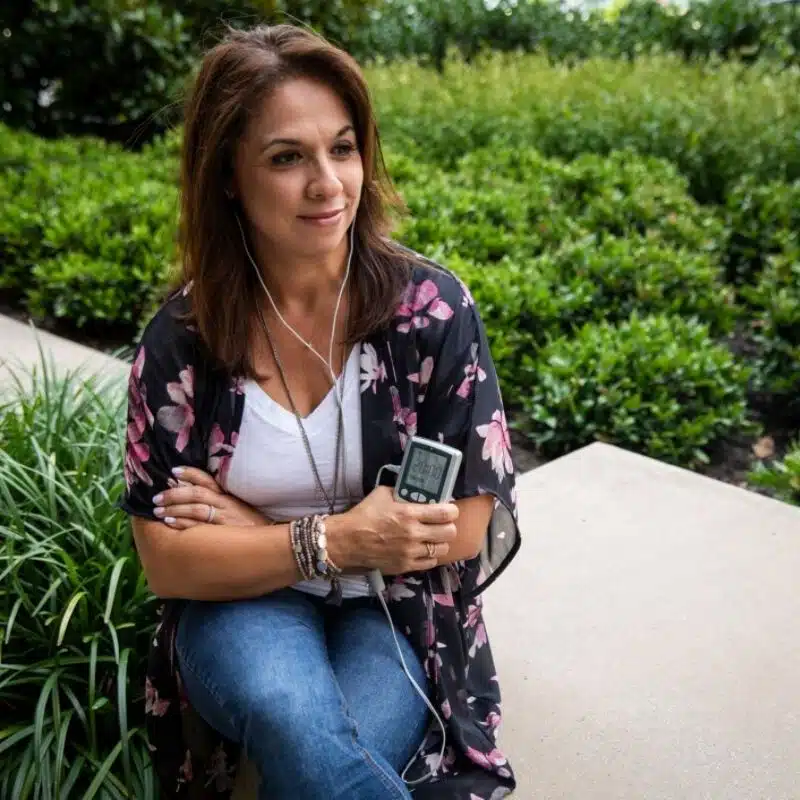There is no way to sugarcoat it: we are living through a pandemic. The impact of COVID-19 on our nation – and the world – is unfolding before our eyes.

While some people are going about their normal lives as best they can, others, who struggle with anxiety even when not in the midst of a worldwide public health crisis, are especially hard-hit. Even if you have never suffered from anxiety before, you may find that your stress levels are through the roof right now. According to Psychiatric Times, the sources of anxiety in an epidemic outbreak include:
- Fear of oneself contracting the illness or disease
- Fear of family or loved ones becoming ill
- Anxiety when illness-related symptoms occur
- Mistrust of healthcare system
- Obsession with cleanliness of one’s surroundings and self
These feelings can be exacerbated by the constant news updates on the internet, radio, and TV. We’re being bombarded with information about new cases, fatalities, and panicked masses clearing the shelves of grocery stores, not to mention the financial fears coming from a crashing stock market, layoffs, and unpaid sick leave. And with the President urging people to avoid gatherings of more than 10 people, the impact on daily life simply can’t be ignored.
Social Isolation: Responsible, and Incredibly Difficult

The message from the experts is clear: we must act now to isolate ourselves to “flatten the curve” of this pandemic. For a little while, we need to stop going to restaurants and gyms; work from home; transform our schools into online-learning platforms. In short, we need to hunker down in our homes. For some, this is an opportunity for much-needed time with spouses, significant others, and children. For others, such as those with high-risk family members or those who live alone, it can be a bit scarier.
We as humans are social animals – we’re accustomed to interacting with other people daily. So, what happens when we’re suddenly thrust into a long stretch of isolation?
Our social networks play an enormous part in our lives, though we may sometimes take them for granted. From the people you see at the gym to the coworker down the hall to your friends and family, these people provide social interaction that is essential for our mental wellbeing. When we’re asked to abruptly cut off contact with these people, we lose a whole pillar of emotional support.
Signs of Isolation-Induced Emotional Issues
While social isolation may protect us physically, it also makes us vulnerable to loneliness, which “can wreak havoc on an individual’s physical, mental and cognitive health.”¹ There is “evidence linking perceived social isolation with adverse health consequences including depression, poor sleep quality, impaired executive function, accelerated cognitive decline, poor cardiovascular function and impaired immunity at every stage of life.”
How will you know if this enforced isolation is taking a toll on your mental health? According to the CDC, you should watch out for the following when engaged in social isolation:
- Changes in sleep or eating patterns.
- Difficulty sleeping or concentrating.
- Worsening chronic health problems.
- Increased use of alcohol, tobacco or other drugs.

More general signs and symptoms of depression include:
- Persistent sad, anxious, or “empty” mood
- Feelings of hopelessness, or pessimism
- Irritability
- Feelings of guilt, worthlessness, or helplessness
- Loss of interest or pleasure in hobbies and activities
- Decreased energy or fatigue
- Moving or talking more slowly
- Feeling restless or having trouble sitting still
- Difficulty concentrating, remembering, or making decisions
- Difficulty sleeping, early-morning awakening, or oversleeping
- Appetite and/or weight changes
- Thoughts of death or suicide, or suicide attempts
- Aches or pains, headaches, cramps, or digestive problems without a clear physical cause and/or that do not ease even with treatment
What Can You Do?
Even though you’re isolated, you’re not alone. There are several things you can do to help ease your anxiety and depression in these difficult times.
Paula Durlofsky, PhD, a licensed psychologist, recommends acknowledging your emotions and not judging yourself for your feelings; having a coping plan in place (such as watching a funny movie); taking breaks from the news; getting out in nature; and taking advantage of remote forms of communication with friends and family, to name a few. But what if that simply isn’t enough? The good news is, there is a fast, safe, and easy way to quell your anxiety and depression – and it’s not a drug.

Alpha-Stim® is an FDA cleared cranial electrotherapy stimulation (CES) device that is clinically proven to safely and effectively treat anxiety and depression, as well as the insomnia that can often accompany them. A tiny current of electricity is passed through two electrodes that clip onto your earlobes, restoring balance to your brainwaves and making you feel better – fast. Nine out of ten users experience clinically significant relief from their anxiety, with results that are long lasting and often immediate.
Treatments with Alpha-Stim are painless, and take just 20 minutes to conduct in the comfort of your own home. Backed by more than 100 clinical studies, Alpha-Stim is safe to use in conjunction with other treatment modalities (in case you’re already taking anxiety medications or antidepressants), and is safe for use on children and aging adults, as well.
Even once we emerge on the other side of this crisis – and we will emerge – it will be essential to take care of your mental health in the aftermath of the pandemic. What we are going through is a major life event. Take China for example: more than 40% of survey respondents had anxiety related to the outbreak, and 21.5% of people evaluated had obvious symptoms of PTSD.²
The beauty of Alpha-Stim is that you can use it whenever you encounter high-stress periods in your life. Unlike with medications, there is no potential risk from starting or stopping treatments suddenly. You can use Alpha-Stim as often as you need to, without risk of overuse – and you can stop treatments whenever you want, with no risk of withdrawal.
There’s no doubt about it: this is a scary time. It’s normal to be experiencing mental and emotional distress – but you don’t have to accept depression and anxiety as your new normal. Get started today (we’re here for you – our offices are still open) and see what Alpha-Stim can do for you. And since we understand that finances may be a concern right now, if you’re not impressed with how much better you feel in 30 days, you can return it.
About Alpha-Stim
Alpha-Stim® is an FDA cleared, handheld medical device that has been proven time and again to effectively treat acute, post traumatic, and chronic pain, as well as anxiety, insomnia, and depression. Alpha-Stim uses cranial electrotherapy stimulation (CES), delivered through a patented waveform via two earclip electrodes, to treat anxiety, insomnia, and depression. Microcurrent electrical therapy (MET) delivers pain relief directly to the source of discomfort via two handheld Smart Probes.
The safety and effectiveness of Alpha-Stim is backed by over 100 independent clinical research studies. Unlike with medications, there is no risk of addiction or lasting side effects.
Alpha-Stim is available by prescription in the United States and over-the-counter in other countries. Get started today!
¹Philosophical Transactions of the Royal Society B, Vol. 370, No. 1669, 2015
²Kirton D. Chinese Public Dial in for Support as Coronavirus Takes Mental Toll. Medscape 925213, Feb 14, 2020.
